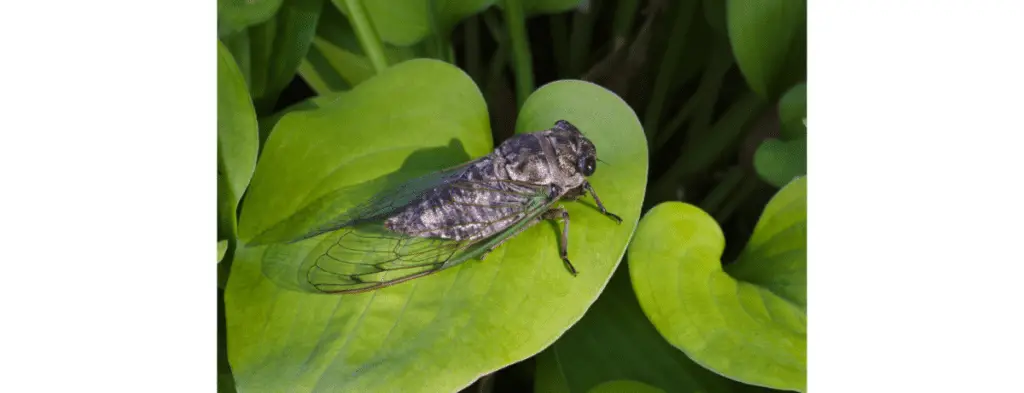
Cicadas are strange and unique insects. The sounds they make can be annoying when in the mood to sing, but after the cicada molting and mating period, they will die shortly after reproducing unless they are captured or killed.
How Do You Keep Cicadas Out of Your Garden?
Cicadas are not only annoying but will destroy plants in your garden. They are a type of insect, making their homes in tree branches and the ground. These insects live in the soil during winter and then emerge during summer to breed. If you want to keep cicadas out of your garden, here are some ways that you can do so:
Use Mulch
Mulch is an excellent way to control cicadas because it keeps them from burrowing into the ground. This will prevent them from laying eggs in your garden or around your yard. The mulch also helps retain moisture in the soil, which will help reduce damage from drought conditions. Find more information on mulching your garden in this post.
Use Insecticides
Insecticides are another way to keep cicadas out of your yard. You can use chemicals or natural products like soap and water solutions to kill these pests before they become an issue for your plants or flowers. If you choose to use chemicals, make sure they are labeled for application on edible plants so that you don’t accidentally poison yourself while trying to kill these pests. We look at natural pesticides and organic ways to get rid of bugs here.
Keep Your Garden Clean
Keeping your garden clean is one of the easiest ways to prevent cicadas from taking it over. Keep leaves and debris away from your plants, so they don’t make their homes there. Remove dead leaves and branches around your house, so there are no hiding places for cicadas. Learn how to fix a neglected garden here.
Remove Shelter Areas
Cicadas love to hide under rocks, boards and other items that shelter them from predators. If you see areas like this in your garden, get rid of them as quickly as possible so that the cicadas don’t have a place to hide once they emerge from the ground.
Plant Flowering Plants
Cicadas don’t like bright colors or strong smells, so plant flowers that attract hummingbirds and butterflies instead. Their bright colors will help keep cicadas away from your yard while attracting beautiful creatures! If you already have cicadas in your garden, consider planting more flowers near them so they will be drawn away from your other plants and flowers. Also, try planting herbs like basil or mint around your house because these herbs repel cicadas and other pests such as ants and flies.
What Smells Do Cicadas Hate?
Cicadas are known for their loud, buzzing sound and can be a real nuisance. But what’s worse than having your backyard covered in cicadas? Having them land on you. The good news is that some smells repel cicadas. If you have one of these plants in your yard, you’ll be safe from pests. Here are some types of plants and herbs that will keep cicadas away from your home:
Pine Needles

Pine needles don’t just look nice; they also smell good – birds like them so much! They have an aromatic scent that doesn’t attract cicadas at all. The best way to employ pine needles as a cicada repellent is by placing them around your garden or lawn so that they’re visible from above by the flying insects. This will keep them away from your plants and flowers where they would otherwise feast upon them.
Lavender
Lavender (paid link) has been used as an insecticide since ancient times due to its strong aroma that repels insects like mosquitoes away from areas where they’re growing. You can use lavender oil by spraying it directly. Want ideas for how to use lavender in the garden? Check out this post!
Marigolds
Marigolds (paid link) are known for repelling many different types of insects, including cicadas, aphids and white flies. They also come in various colors, so it won’t look like weeds have overrun your garden. Learn more about the benefits of marigolds in our post here.
Citronella Oil (From Citronella Plants)
You probably know this one as a mosquito repellent – it has been used for centuries by people who want protection from mosquito bites without using harsh chemicals. But cicadas hate it too! Citronella oil is found in many commercial insect repellents, including Off! Deep Woods products (which contain citronella oil), Cutter Backyard Bug Control products (which contain citronella oil), and Raid Ant & Roach Killer Plus Germ Killer products.
Do Cicadas Harm Trees and Plants?
Cicadas are insects that live underground as nymphs for 17 years before emerging as adults. They are harmless to humans and pets but can cause damage to trees and plants. Here are some ways in which cicadas harm trees and plants:
Sucking Sap from Tree Trunks
Cicadas do not bite or sting people or animals, but they do suck sap from the roots of trees. This can cause the tree to die if it cannot quickly replace the lost nutrients. If a large number of cicadas work together, they can kill an entire tree by sucking its sap dry, especially if there aren’t many other trees around for it to feed on.
Damaging Buds and Flowers
Adult cicadas also feed on buds and flowers, which means they’re likely to damage these parts of your garden and trees. Cicadas like to lay their eggs inside flowers so that their offspring have food when they hatch out of their eggs later in the summer months when little is available for them to eat.
Damage Caused by Their Nests
Cicadas make nests in small tree branches or trunks where they lay eggs and then die off after laying them all over again after two years of living underground as larvae. These nests are made up of many cicada skins, eggshells and feces, which all add up to form a mass amount of debris at the bottom of the trees that could lead to branch breakage or even tree death if left unchecked.
Damage to Trees and Plants by Burrowing
Cicada tunnels often damage tree trunks, which can weaken them over time or cause them to die off completely if left untreated. The tunnels can also harbor diseases such as plant pathogens that can spread through your garden or farmland if not taken care of quickly enough.
Cicadas Spread Disease
Cicada nymphs spread diseases like fungal infections and bacterial infections through their saliva when they feed on your plant’s stems and leaves. These diseases can kill many different plants in addition to trees and shrubs.
This post contains affiliate links. If you make a purchase through these links, we may receive compensation at no additional cost to you.


